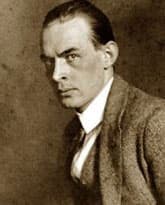Erich Maria Remarque
Critique • Works • VIEWS & QUOTES

Erich Maria Remarque, circa 1928
Born
1898, Osnabrück, Prussia, German Empire
Died
1970, Locarno, Switzerland
Places lived
Germany, Switzerland, United States
Nationality
German, American
Publications
Novels, stories, plays, essays, screenplay
Genres
Literary, war novels, romance
Writing language
German
Literature
• All Quiet on the Western Front (1929)
Novels
• All Quiet on the Western Front (1929)
German Literature
• All Quiet on the Western Front (1929)
On books, writers and writing
1929
I was unknown and found life hard. I had nothing in common with the manifestations of modern culture. I felt I was different and alone. One day I started writing. I had the material and it only wanted putting in order. But for a long time I left what I had written lying in a drawer and began other things. The book seemed to me too personal.
I believe that it is an isolated success. The success took me by surprise, and left me cold. Far from giving me pleasure, it made me feel inexpressibly sad and helpless. Suddenly I, the unknown, became an object of interest and curiosity. It all depressed me, and I had to escape from Berlin and come here to Davos....
To write another book after such an astounding success will be a difficult task. Perhaps I shall never write anything more. Why should I add yet another to the vast army who write from vanity, necessity, or because of their vocation?
Interview, The Manchester Guardian
1946
The difficulty is, you see, that our imaginations cannot count. When I say five million died—the figure is blank. Five million deaths does not equal one death. Five thousand dead in a concentration camp—there is that same difficulty. The figure is blank. But if I say five died, then perhaps. And if I say one died, a man I have made you know and understand, he lived so, this is what he thought, this is what he hoped, this was his faith, these were his difficulties, these his triumphs and then he—in this manner, on this day, at an hour when it rained and the room was stuffy—was killed, after torture, then perhaps I have told you something that you should know about the Nazis.
Interview, New York Times Book Review
1962
My topic in All Quiet on the Western Front was...a purely human topic: that young people of eighteen, who should actually be faced with life, were suddenly faced with death. And what would happen to them? That's why I saw All Quiet on the Western Front more as a post-war book, than as a "war book", because I thought to myself—people [in the novel] keep asking: what will become of us? How will we be able to live afterwards, after we've gone through all this, after we've had to deal with death? How will it be when we are put back into life and what will happen to us? And the success of All Quiet on the Western Front was, in my opinion, much more like that of a postwar book, a book in which this question was asked: what has become of these people? It was also asked for the first time what kind of damage have people suffered, or did they suffer anything from being in the war and had to throwaway all their so-called moral principles? They were told, "You must not kill", but then they say, "You have to aim well, to hit the target...."
[On being influenced by Ernest Hemingway:]
I knew him personally. I couldn't be influenced by him, because I couldn't read anything by him. I didn't speak English. I think his first book came out two or three years before All Quiet on the Western Front and of course I didn't read it until much later. We don't even have that much in common.
Television interview with Friedrich Luft, Das Profil

